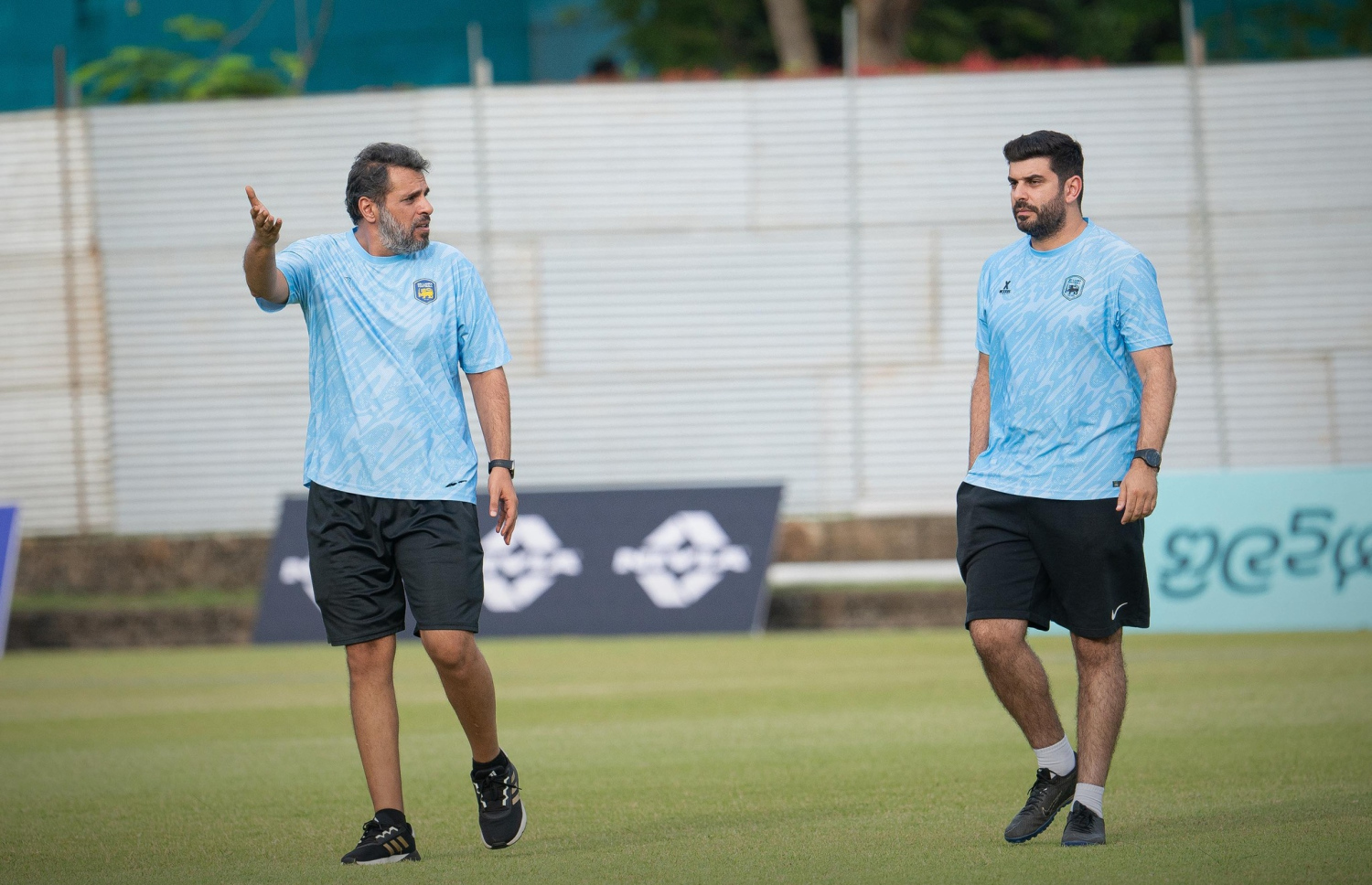Maldivian national team head coach Mohamed Shiyaz (Mohan) has acknowledged that Sri Lankan football has undergone significant transformation, calling the team one of the strongest in the South Asian region today.
Speaking ahead of the Maldives’ two upcoming matches against Sri Lanka in the South Asian Super Cup, Mohan said this will be his first major test since taking over as head coach late last month.
“Sri Lankan football has changed a lot. Players of Sri Lankan descent who play abroad are being naturalized. Two new players are expected to receive citizenship just in time for the matches against us,” he said.
Mohan explained that naturalization has had a significant impact, with several players in the current Sri Lankan squad hailing from lower-tier leagues in the UK and other countries. This shift has helped strengthen the squad and improve the team's competitiveness in the region.
“They are now a strong team in the region, especially with players who play regularly abroad. That’s a big challenge for us,” he added.
The Sri Lankan squad is coached by Abdullah Al Mutairi of Kuwait, who previously led Nepal. Mutairi had recently described Maldives as the strongest team in the region, following their recent victory over India.
Mohan expressed appreciation for the comment, but also pointed out that Mutairi may not be fully aware of the current state of Maldivian football.

“I thank him for the respect he has shown. But the truth is, our football has deteriorated slightly over the last three or four years. Other countries in the region have made progress, while we’ve fallen behind.”
He reiterated that this stagnation is largely due to the lack of domestic football activity, including no league or tournament play in the past couple of years.
Mohan also noted a tactical shift in Sri Lankan football, with the team now focused on building play from the back — something that he believes may play to Maldives’ advantage.
“Playing from below suits us. Given our physicality and style, that kind of game brings us some satisfaction.”
Despite the short preparation time, Mohan expressed renewed confidence in his squad, praising the work ethic and tactical discipline shown during the six-day training camp.
The Maldives last faced Sri Lanka in the Asian Cup qualifiers in Uzbekistan, where Sri Lanka claimed a 1-0 victory under then-coach Francesco Moriero. The teams also clashed in December during the Rajapaksa Invitational Tournament in Sri Lanka. That match — also held at Racecourse Stadium in Colombo — saw Maldives squander a 4-0 lead, ending in a draw. It was Moriero’s first match in charge.
Both upcoming fixtures in the South Asian Super Cup will also be played at Racecourse Stadium, where the Maldives will look to redeem past performances and restore confidence under new leadership.